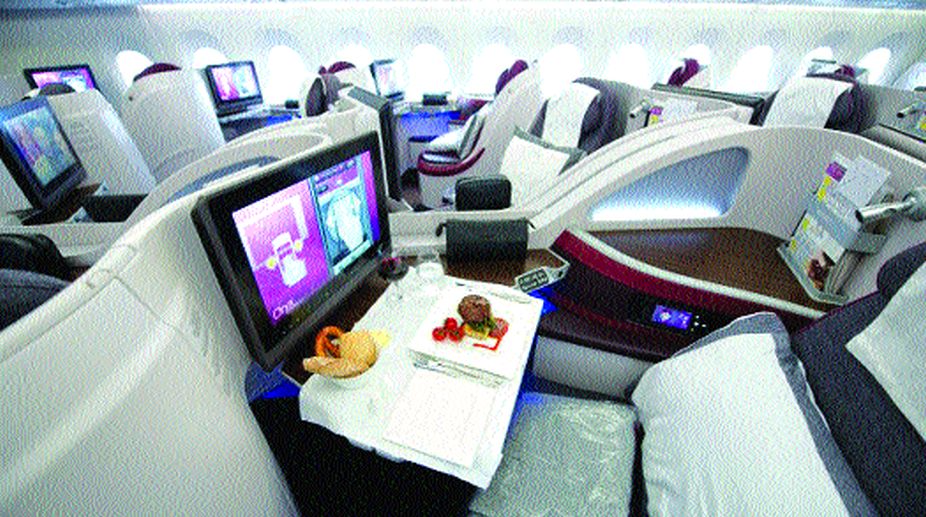Major blunder
No one would come to be afflicted with a bleeding heart if they came to know of honorariums from the Board of Control for Cricket in India for erstwhile first-class players.

(PHOTO: SNS)
I know a gentleman who travels frequently between the sub-continent and the US. Each time he makes a trip, he includes a post on Facebook that lets everyone know he is travelling first class. Often, he not only mentions this fact but also takes care to note that while in the terminal he is in one or the other first-class lounge.
In the past year or so, his progeny has begun to engage in the same sort of braggadocio. As they say, the apple does not fall far from the tree; the afflictions of a boastful father have now been duly transmitted to the next generation.
This behaviour, the insistent (and annoying) habit of disseminating the news of one’s first-class status is neither new nor unique; many South Asians are afflicted with the same disease. On any given day, your Twitter or Facebook feeds are likely to be littered with similar ‘check-ins’. Even more annoying are the humble brags; in the case of this particular gentleman, he took to complaining about the poor service in first class, expressing his sympathy for the unfortunate souls in economy who must be having an even tougher time.
Finally, someone called him out for it and he was brought to public justice in the very forum he used to demonstrate his pomposity. The laughter of the vindicated, that exhausted audience of the conspicuous consumption of others, could be heard in homes far and wide.
While the social media tools via which the boasts are bandied about may be Western inventions, there is something distinctly South Asian about this adulation of first-class travel. It is not surprising. Only a few hundred years ago (and arguably even now), inherited caste determined all the opportunities that one could access in life.
The hierarchy inherent in that system of social organisation — the lower, the higher, the superior and the inferior — has left its seeds in the psyche of those who live today. Nothing, it seems, replicates it quite as literally as the partitioned-off front section of an aircraft. In being seated in first class, those plagued by the inferiority of being lesser in some way can lord it over all those who may be better. They can imagine that sitting in first class on a plane means being first class in life.
The truth of this can be seen in the fact that the sort of shameless bragging about being in first class, or the more creative boast about how even first class is somehow lacking in its ability to satisfy, is rare among Westerners. It is not that the Western world lacks conspicuous consumption or the wealthy or VIPs; it is just that this brand of bragging is not attached, like it is when it comes to South Asians, to a particular pathology regarding class and caste.
It is not just a history of hierarchy and caste that makes South Asians so focused on flaunting their first-class status. Air travel, after all, represents mobility, and mobility suggests the ability to transcend borders, the very markers that constrain and constrict. Most of the wealthy lot in Pakistan, fat and rich on money they have usurped or inherited, have a solid sense of entitlement that largely insulates them from the drudgery of having to stand in line, to wait, and generally to behave. In taking possession of first-class seats (even when they are on an airline bankrupt in part because it has had to accommodate their free-loading) they not only visibly and literally look down on people walking by into the realm of the commoner, they underscore that like all other rules, those that limit the movement of the ordinary do not apply to them.
Close behind the wealthy are the almost wealthy, who by virtue of jobs abroad or with multinational corporations have ascended to first class. These sorts can be worse, notable only for their wholesale adoption of the condescension of the actually wealthy. In sitting for just a little while on a slightly larger seat, eating a slightly bigger meal, and getting extra servings of juice, they believe they have conquered the world (and of course they want us all to know).
I have never travelled in first class. But many of those who do might believe that those who don’t must be jealous or desperate for more juice and an extra blanket. It does not bother me. In the South Asian obsession with first class is an equal and opposite disdain of equality, frugality and avoidance of waste. When the self-worth of a human being is assessed by the size of a house, the make of a car, the number of servants and, of course, whether or not one travels first class, the consequence is moral stagnation.
There are many for whom social media is a forum for self-aggrandisement, and having access to first-class airport lounges and the first-class section of an aircraft provides them with an opportunity to indulge in this exercise. However, they should be aware of a few home truths: the world, or specifically their friends and family who inhabit their newsfeed and who they are out to impress, would not be admiring of them as they believe. In the case of first-class travel, they do not appear superior, but simply as insecure and depending on an airline label for the evaluation of their worth as individuals. The others may have to wait longer, eat less, be more cramped, but they know that they will get to wherever they are going at exactly the same time.
(Dawn/ANN.)
Advertisement
Advertisement
Advertisement